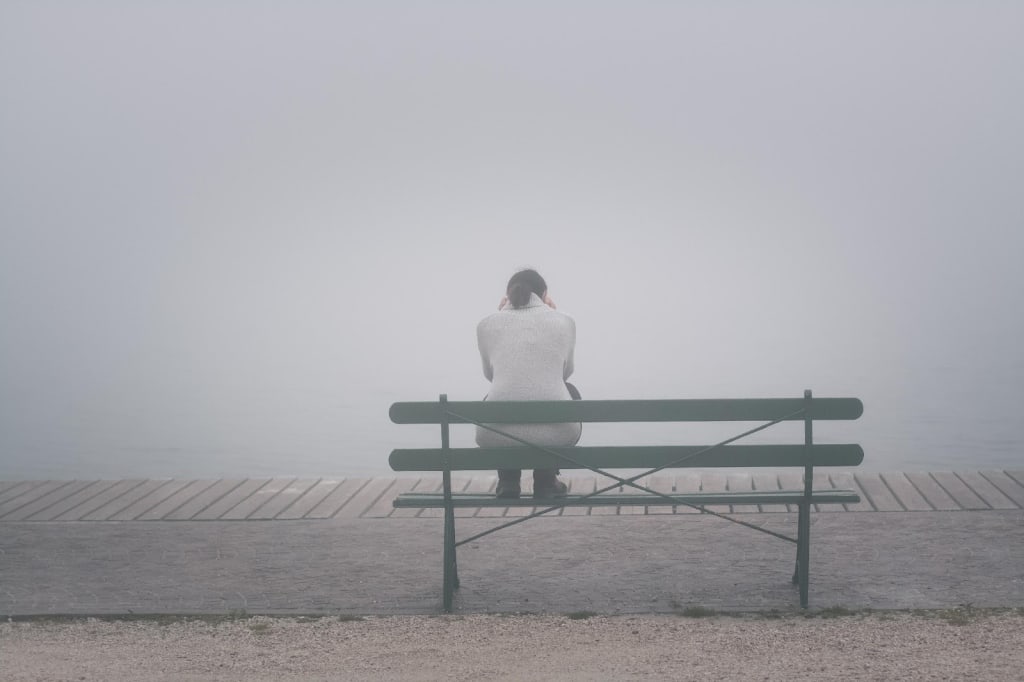Where Can People Go if They Have Depression
Too often, people struggle with this complex mental health disorder in silence, not knowing where to turn to get help.

By Geoffrey A. Booth, M.D., Medical Director, LifeSync Malibu
For anyone experiencing the full impact of depression, daily life can feel pretty lonely and bleak. It is hard for your loved ones to even relate to your suffering unless they have had the misfortune of dealing with depression themselves.
Too often, people struggle with this complex mental health disorder in silence, not knowing where to turn to get help. Do you go to your primary care physician? A therapist? A psychiatrist? Where can people go if they have depression?
Understanding Depression
Depression is the second most prevalent mental health disorder among U.S. adults, after anxiety. Symptoms of depression range from mild to severe, with severe depression potentially causing a disabling level of impairment.
If you are experiencing five or more of the following symptoms for two weeks or longer in duration, it is important to seek a mental health evaluation:
- Loss of interest in usual hobbies or activities
- Difficulty making decisions or concentrating
- Feeling sad, empty, and hopeless
- Slowed cognition and movements
- Sudden weight gain or loss
- Change in sleep patterns; insomnia or hypersomnia
- Irrational feelings of worthlessness, guilt, or shame
- Fatigue
- Suicidal ideation
Depression is a mood disorder with several subtypes, each with its unique features. The different types of depression include:
- Major Depressive Disorder (MDD). These episodes last a minimum of two weeks and may be a single event or multiple episodes.
- Persistent Depressive Disorder. This is also called dysthymia and features a continuous depressed state for two years or longer that may vary in severity.
- Bipolar Depression. Depressive episodes with symptoms like MDD that alternate with manic episodes.
- Seasonal Affective Disorder. A type of depression that occurs during the winter months when there are fewer daylight hours.
- Postpartum Depression. This type of depression affects new mothers and is associated with hormonal fluctuations during and after childbirth.
How Does Depression Affect Your Body?
You may be surprised to learn that, although a mental health disorder, depression also affects your physical well-being. This is an example of how tightly the mind and body are connected, and why it is so important to get help for your depression. Some of the ways depression can impact your health include:
- Frequent headaches
- Stomach distress
- Nausea and vomiting
- Inflammation
- Chronic pain
- Autoimmune disorders
- Weight gain or loss
- Disrupted sleep patterns
- Decreased libido
- Coronary heart disease
Risk Factors for Depression
Science continues to conduct research, seeking answers regarding the exact causes of depression. While these studies are ongoing, factors have been identified that point to the increased risk of developing depression. These risk factors include:
- Gender, with females having up to three times the rate of depression
- History of trauma
- Genetics, where depression runs in the family
- Personality traits that dictate how you deal with adversity or loss
- Chronic stress
- Unresolved grief after the loss of a loved one
- Substance abuse
Do Antidepressants Work?
In most cases, when wondering where people can go if they have depression, the psychiatrist comes to mind. A psychiatrist is a medical doctor who has special training in the area of mental health. Where a psychotherapist can help a patient through therapy, a psychiatrist can prescribe antidepressants for patients diagnosed with depression.
There are different categories of antidepressants, such as SSRIs, SNRIs, TCAs, and MAOIs. In all, there are about thirty antidepressant drugs available on the market. Studies show that these medications have a positive effect on 30%-70% of depression patients. It is common for patients to try a few different antidepressants before finding the one with the most efficacy and fewest adverse effects. On average, the effects of antidepressants take about 4-6 weeks to be noticed.
How to Improve Daily Functioning if You Have Depression
If you are under the care of a psychiatrist for the treatment of depression, you most likely have also been referred to a therapist for psychotherapy, or talk therapy sessions. This combination of antidepressants and therapy is considered the standard of care for depressive disorder.
In addition to these actions, there are lifestyle changes that will further improve your overall mental health, including depression symptoms. Consider adding these to your routine:
Stay connected. Even though you probably aren’t feeling especially social, make an effort to regularly reach out to a close friend or family member.
Increase physical activity. Consider adding a brisk daily walk or jog to your routine to boost endorphins and improve your state of mind.
Increase sun exposure. The sunlight helps us produce vitamin D, so twenty minutes outside in the sunshine can benefit someone with depression.
Keep a regular sleep schedule. Try to keep a set sleep schedule as this helps your body return to a normal circadian sleep rhythm.
Keep a journal. Journaling can be a great way to record your journey through and out of depression. Writing your thoughts and feelings down can be therapeutic.
In addition to all of these lifestyle tweaks, be sure to moderate your expectations. The positive changes will evolve gradually over time, so do yourself a favor and keep your expectations realistic.
Treatment Options for Depression
So, where can people go if they have depression? The truth is, each person’s experience with depression is unique. The medications therapies or treatment settings that work for one person may not be effective for another. For this reason, there are a variety of treatment options available for someone who is seeking help for depression.
Outpatient treatment. There are three levels of outpatient care available. These include basic outpatient therapy, intensive outpatient programs, and partial hospitalization programs. For individuals who favor outpatient treatment, depending on the severity of the depressive disorder, you may begin with the most intensive outpatient, which is the partial hospitalization program, and then gradually step down as you improve.
Residential treatment. A residential treatment setting is where people can go if they have moderate to severe depression, as these programs are more comprehensive in scope. Comfortable on-site housing is provided, which helps to cultivate continuous care and support while you are a resident. Cognitive behavioral therapy and other types of therapy are provided daily, as well as experiential and holistic activities.
If you are suffering from the debilitating effects of depression, there are multiple treatment venues and programs that can provide the help you need to return to wellness.
About the Author
Geoffrey A. Booth, M.D. is the Medical Director of LifeSync Malibu, an exclusive mental health and dual diagnosis rehabilitation program located in the heart of Malibu. Dr. Booth has treated thousands of addicts over the years and now has dedicated most of his clinical time to providing medical care and detoxification to clients who suffer from substance abuse. He is committed to helping them establish the foundations for long-term sobriety. While not working, Dr. Booth has a rich personal life filled with activities surrounded by friends and family.
About the Creator
Geoffrey Booth
My name is Dr. Geoffry Booth founder of LifeSync is a premier physician owned and operated Malibu Detox addiction residential treatment center.






Comments
There are no comments for this story
Be the first to respond and start the conversation.